Though Andrea Levy did not begin writing until her mid-thirties, her books powerfully explore Britain’s history with the Caribbean from different perspectives. Levy's first three novels reflect on the issues faced by Black, British-born children of Jamaican emigrants. Her fourth novel takes a look at the experiences of folks from her father’s generation, who returned to Britain after contributing to the RAF in the second World War.
Her last novel is more historical fiction, and is set in early 19th century Jamaica during the last years of slavery. Her final publication is a collection of short stories and essays about her Caribbean heritage and writing inspirations.
As she was born in 1956—eight years after her parents sailed to London from Jamaica—many of her novels are set during the 60s and 70s, periods of time where there wasn’t much discourse about the Black British experience in Britain. Though Levy passed in 2019, her award-winning work continues to be an enlightening and formidable read.
If you’d like to explore the relationships between the two countries from a deeply personal perspective, we’ve provided a list of Andrea Levy’s books below, in chronological order of publication.

Every Light in the House Burnin'
Every Light in the House Burnin’ is a touching re-imagination of Andrea’s life. The main character, Angela, explains how her father sailed from England to Jamaica in 1948 on the Empire Windrush. Her mother joined him in his one bedroom abode six months later.
The story is set 20 years after their arrival to England. Mr. Jacob’s health is declining, and Angela finds herself reliving her childhood as she helps her mother navigate her father’s condition.

Never Far From Nowhere
This is the story of two sisters who may attend the same school, and live in the same house, but couldn’t be further apart. Olive and Vivien were both born in London to Jamaican parents and raised on a council estate.
Vivien is living the full school experience, complete with friendships, youth clubs, A-levels, skinhead violence, discos, and college. But Olive, three years older, and a skin shade darker, is living a vastly different life from her sister.
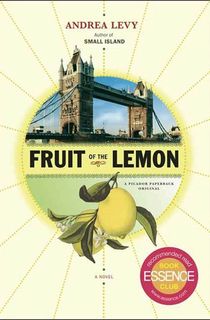
Fruit of the Lemon
Faith Jackson is living the dream: she has a great job in TV, and a perfect flatshare. Her relationship with her overbearing (but loving, nonetheless) family could use some work, but that hope is quickly buried when her parents announce they want to return to Jamaica to retire.
Enraged and confused, Faith accompanies them to Jamaica for her first visit, and is immediately welcomed by her Aunt Coral, a human treasure trove of family history. From Cuba to Panama, Harlem to Scotland, and back to London, Aunt Coal’s colorful characters make it known to Faith how important it is to understand where you’re from.
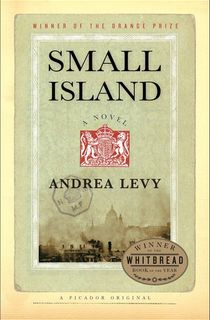
Small Island
England, 1948 – England is recovering from a war, and so is Queenie Bligh, who, against her neighbors’ wishes, agrees to take in Jamaican lodgers. She doesn’t know when, or even if, her husband will return – so what is she to do? Gilbert Joseph, one of several thousand men who joined the RAF to defeat Hitler, and Queenie’s wartime friend, returns to England at this time.
But as a civilian, he finds himself treated vastly differently. Out of desperation, he knocks on Queenie’s door. Gilbert’s wife, Hortense, joins him too, but finds England to be far shabbier than the city she dreamed of starting anew in. And even Gilbert is not the man she thought he was.
Themes of empire, prejudice, war, and love come alive in Small Island, an impactful piece about a little-understood period of time that sold more than a million copies and became Levy's best-known work.
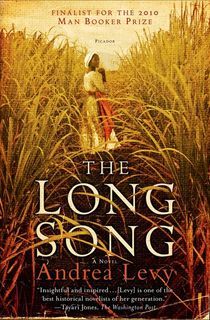
The Long Song
The Long Song is a historical fiction novel set in Jamaica in the final years of slavery and the preliminary years of emancipation. It focuses primarily on July, a slave girl who lives on Amity, a sugar plantation. She’s seen the Baptist War of 1831, and the beginning of the end of slavery. The story also delves into the life of July’s mother, Kitty; the White woman who owned the plantation, Caroline Mortimer; the other plantation workers, and a whole slew of other characters.
Shortlisted for the Man Booker Prize, July’s story is hailed as being a “captivating exploration of a subject that, at a human level, we know depressingly little about.”
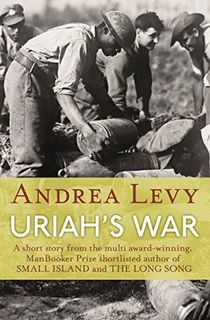
Uriah's War
Uriah’s War is a short story that Levy wrote in commemoration of the 100th anniversary of the breakout of WWI. In it, she tells the story of love, friendship, and the effects of war on two Jamaican servicemen in that conflict.
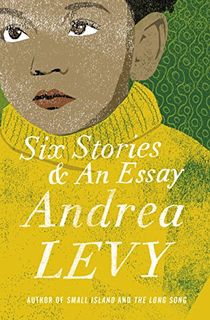
Six Stories and an Essay
A frequent dabbler in the writing of short stories, Levy’s final publication is a collection of them – but begins first with an essay. This essay explains how her writing career has helped her understand her heritage, and she explains the context of each piece within the chronology of their publication. She finishes the anthology off with the inclusion of Uriah’s War.
This is not meant to be a warm and fuzzy reading experience; Levy’s writing is moving, insightful, and brutally honest. It includes her anger towards injustice, leaves you wondering how you can be part of such a dehumanizing society, and gives a voice to many underrepresented voices and eras in and of literature.




